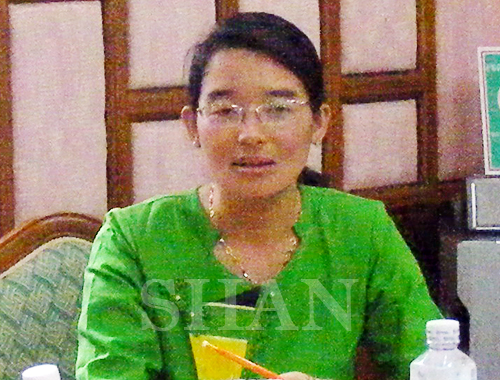In response to recent media reports that the parliament’s bill committee has been assigned by the lower house speaker U Shwe Mann to look into the possibility of incorporating federal principles into the present 2008 constitution, a bills committee member told SHAN she had been misquoted.
According to Nang Wah Nu, MP, People’s Assembly, Kunhing township, she and her boss T. Hkun Myat, MP, Kutkhai township, were assigned to draft:
- Bill on law prescribing duties, powers and rights of state/region chief ministers and ministers
- Bill on law safeguarding the rights of the indigenous peoples
 “We were told to in corporate federal principle without deviating from the present constitution that is in force,” she said.
“We were told to in corporate federal principle without deviating from the present constitution that is in force,” she said.
The charter’s Article 261 (d) stipulates: Duties, powers and rights of the Chief Minister and Ministers of the Region or State shall be prescribed by law.
Almost two years after the 2008 constitution came into force, the powers of the chief ministers have been varied, according to each state and region. Shan State Chief Minister Sao Aung Myat, for example, appears to be more of a figurehead than anything.
What the bills committee is doing, however, is far short of the expectations held by leading politicians and activists, who are demanding that the chief minister of each state be elected by each state legislature.
According Article 261, the chief minister is appointed by the Union President from among the representatives of the state legislature concerned. The state Hluttaw (legislature) has no right to refuse it “unless it can clearly be proved that the person concerned does not meet the qualifications.”
To amend the said article, a vote of “more than 75%” of all the representatives of the Union Assembly (498 elected, 166 appointed) is required.



